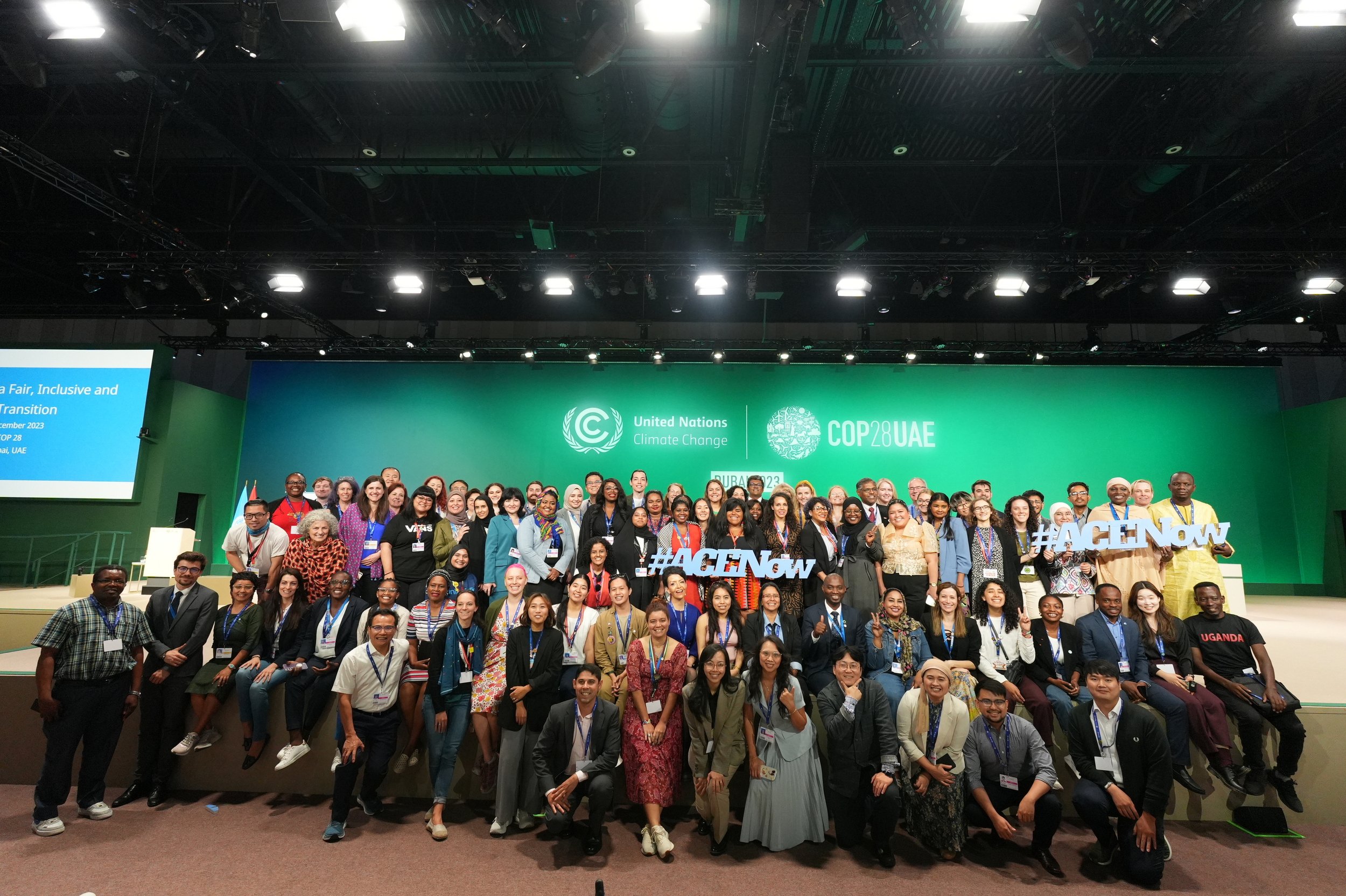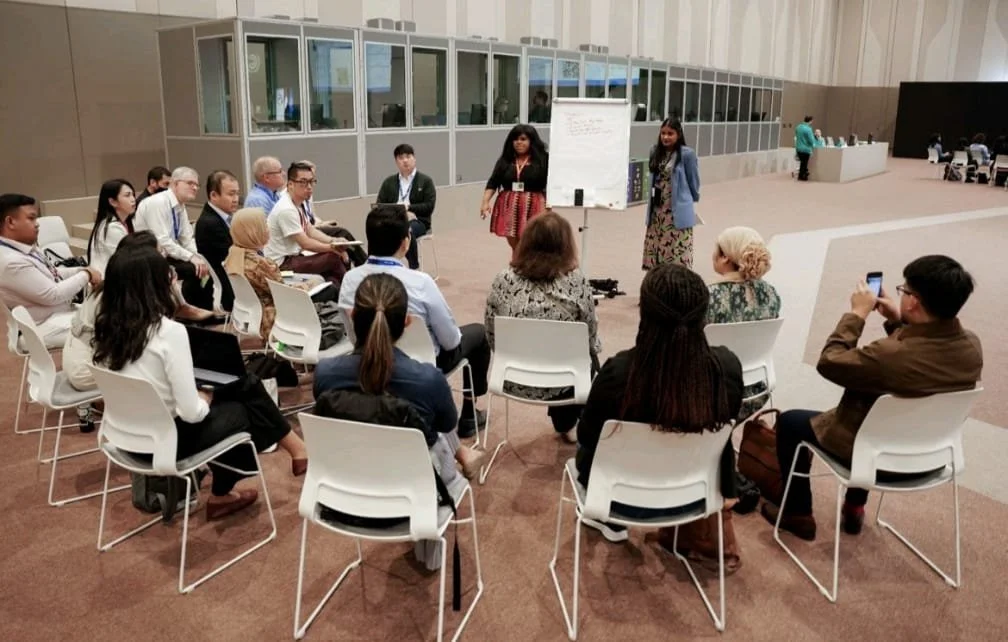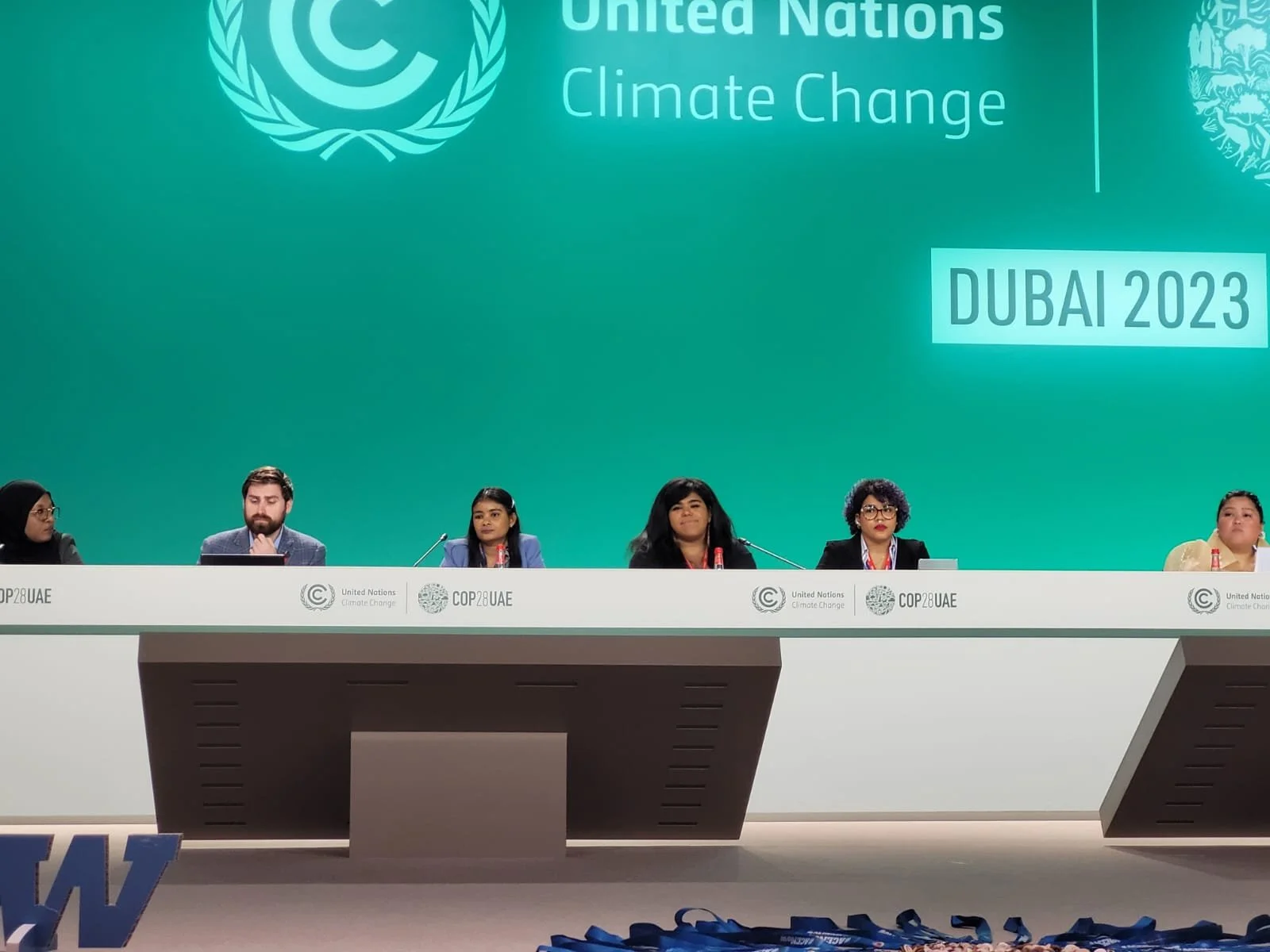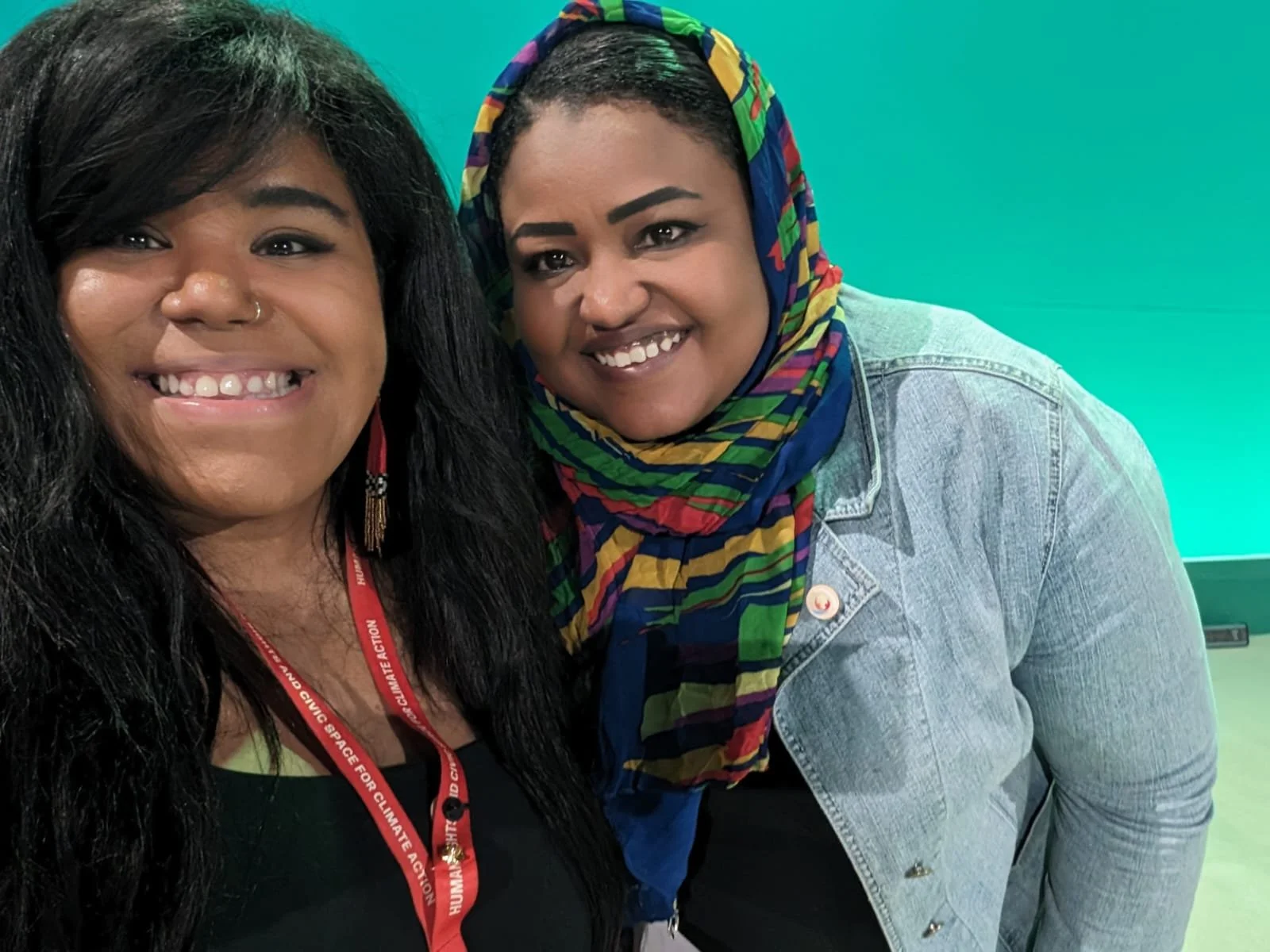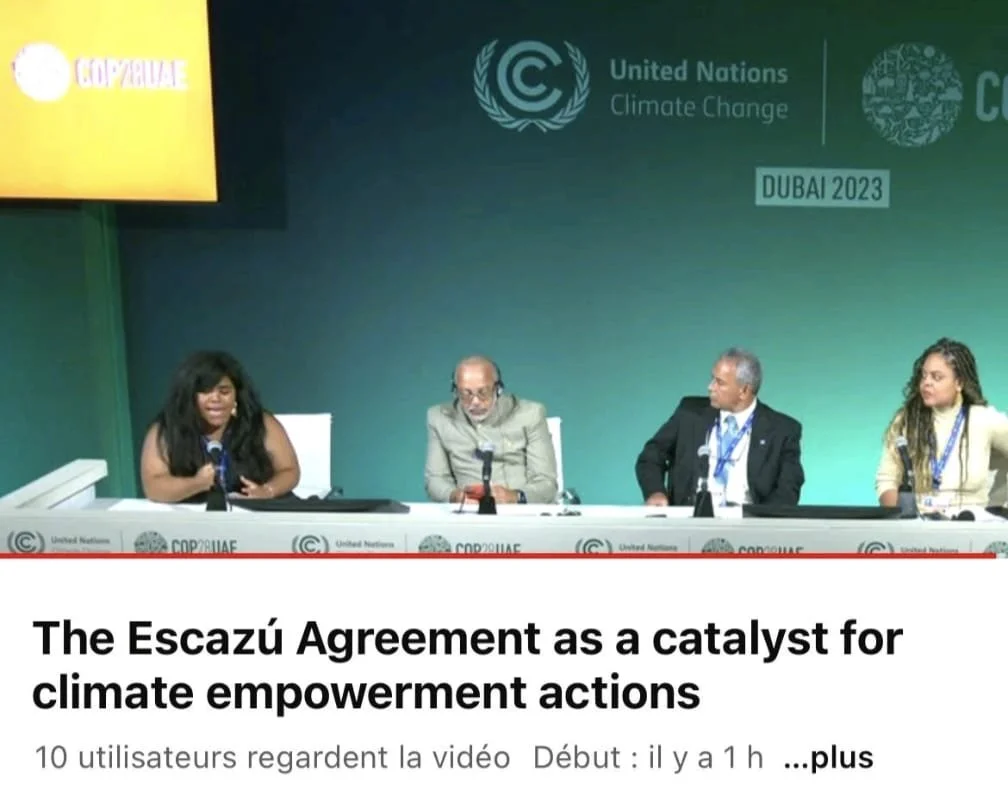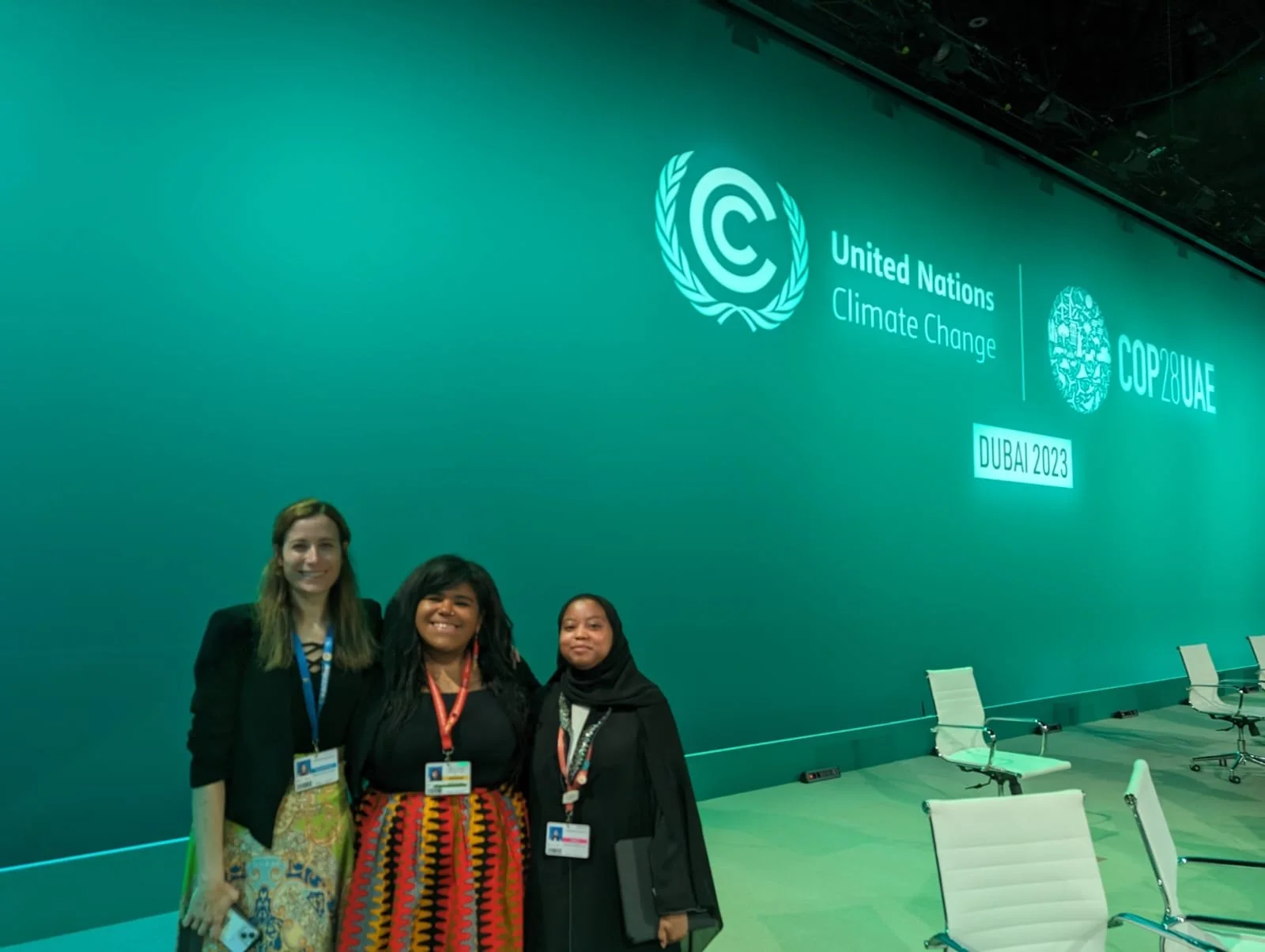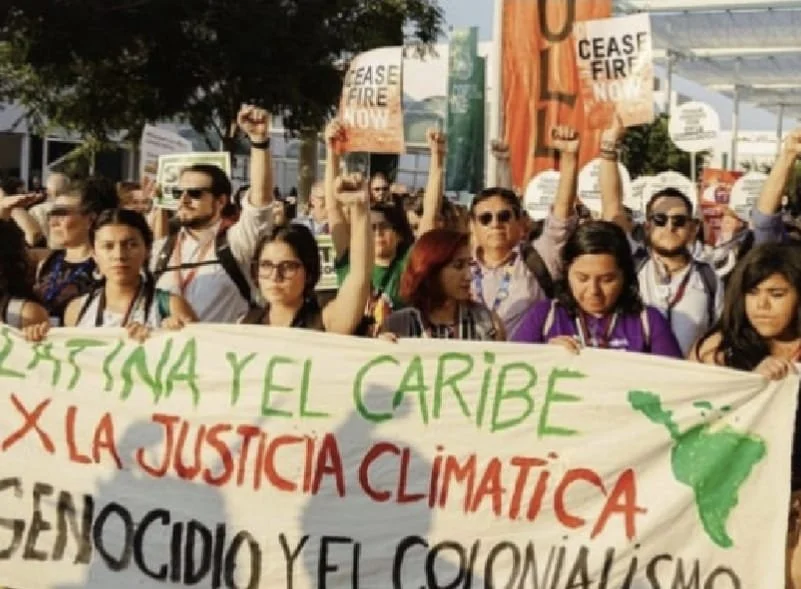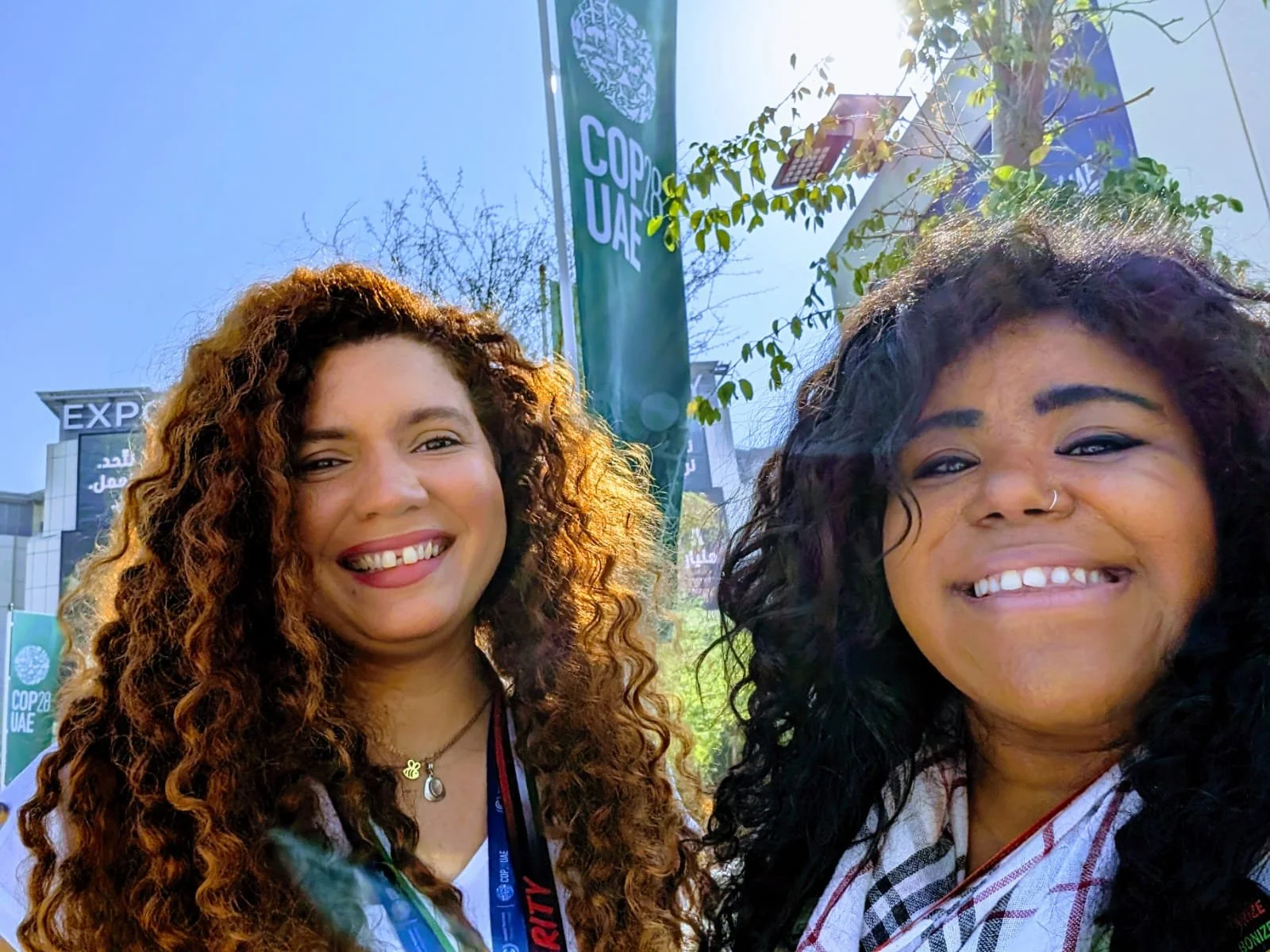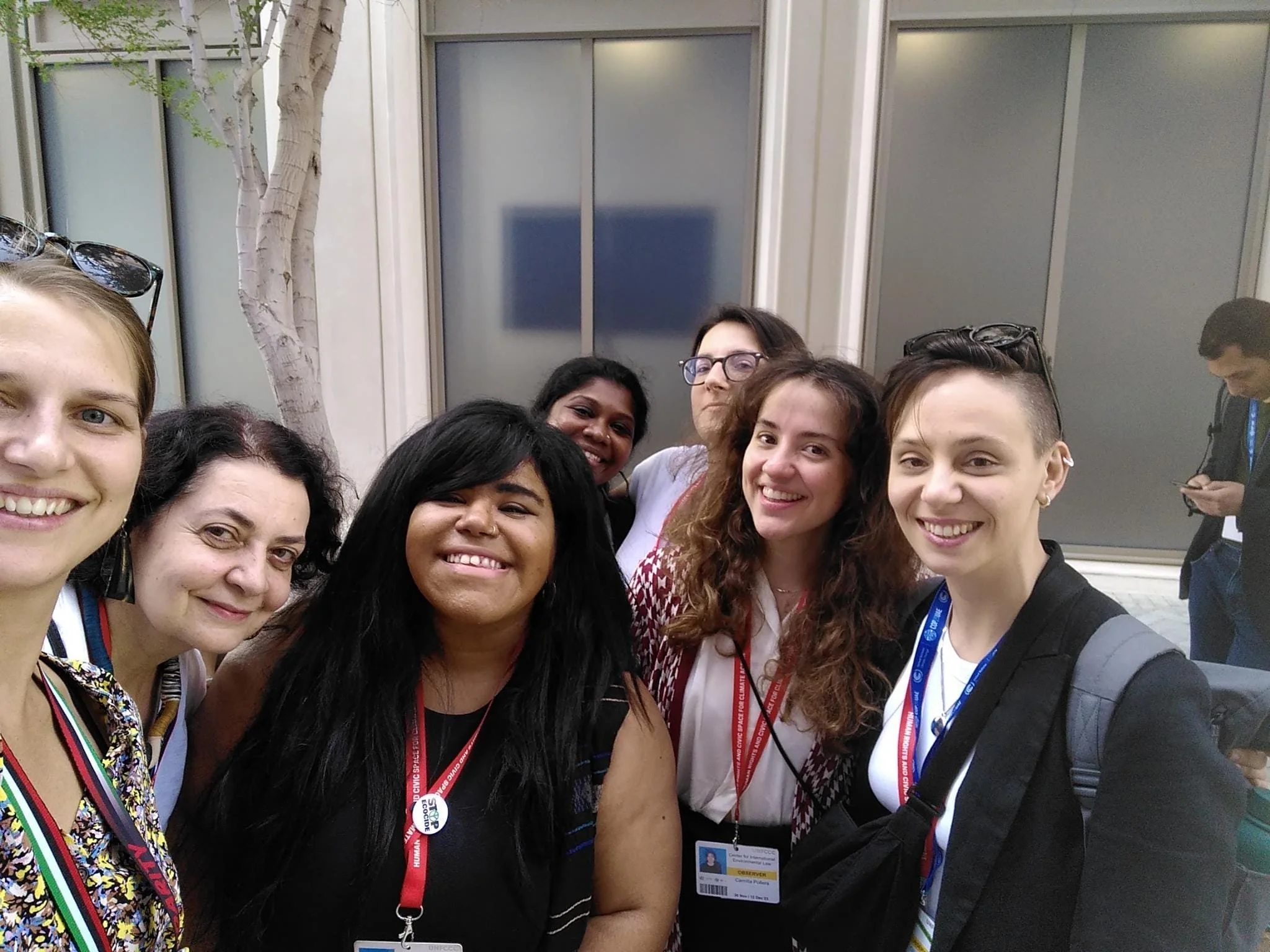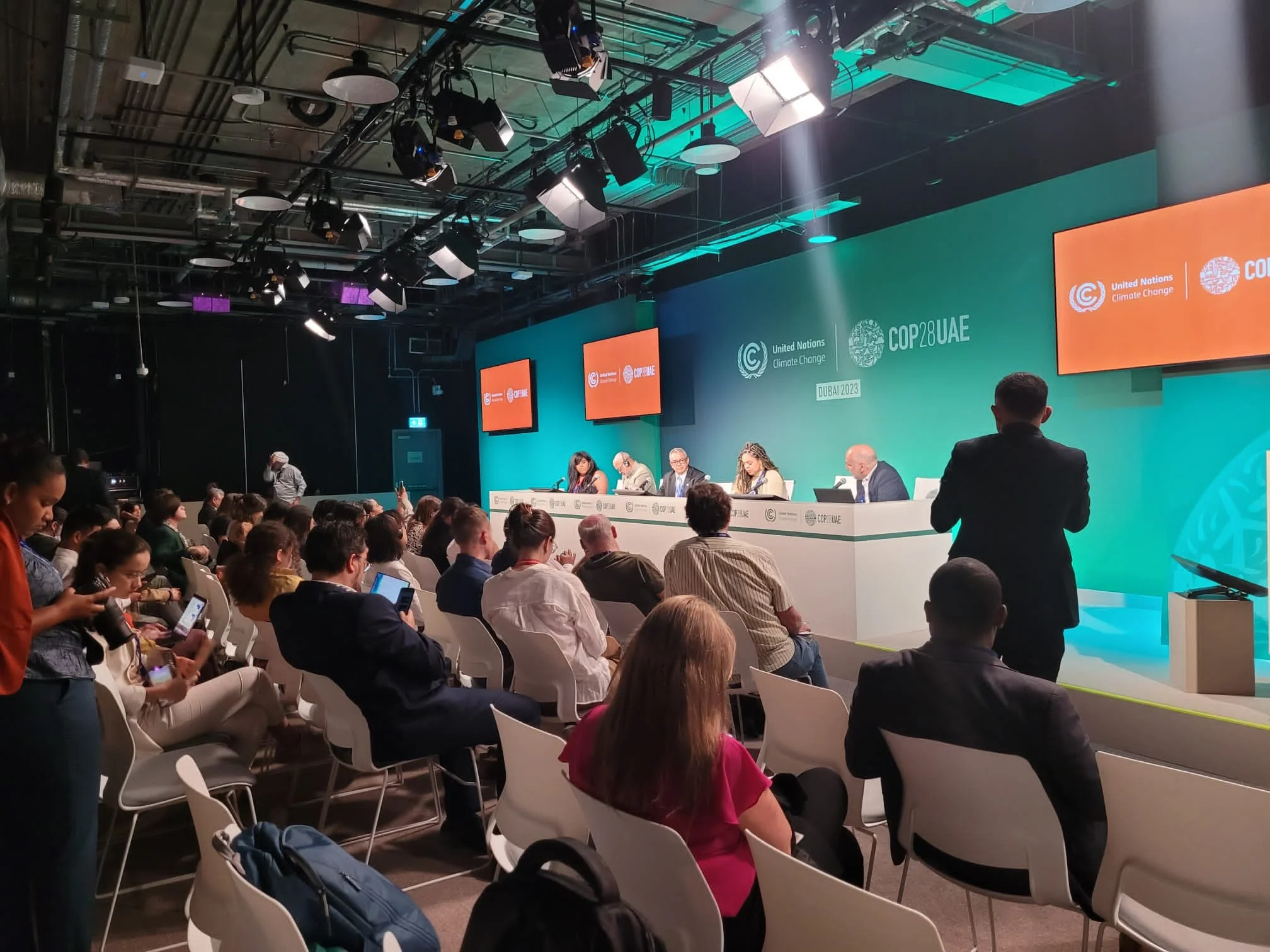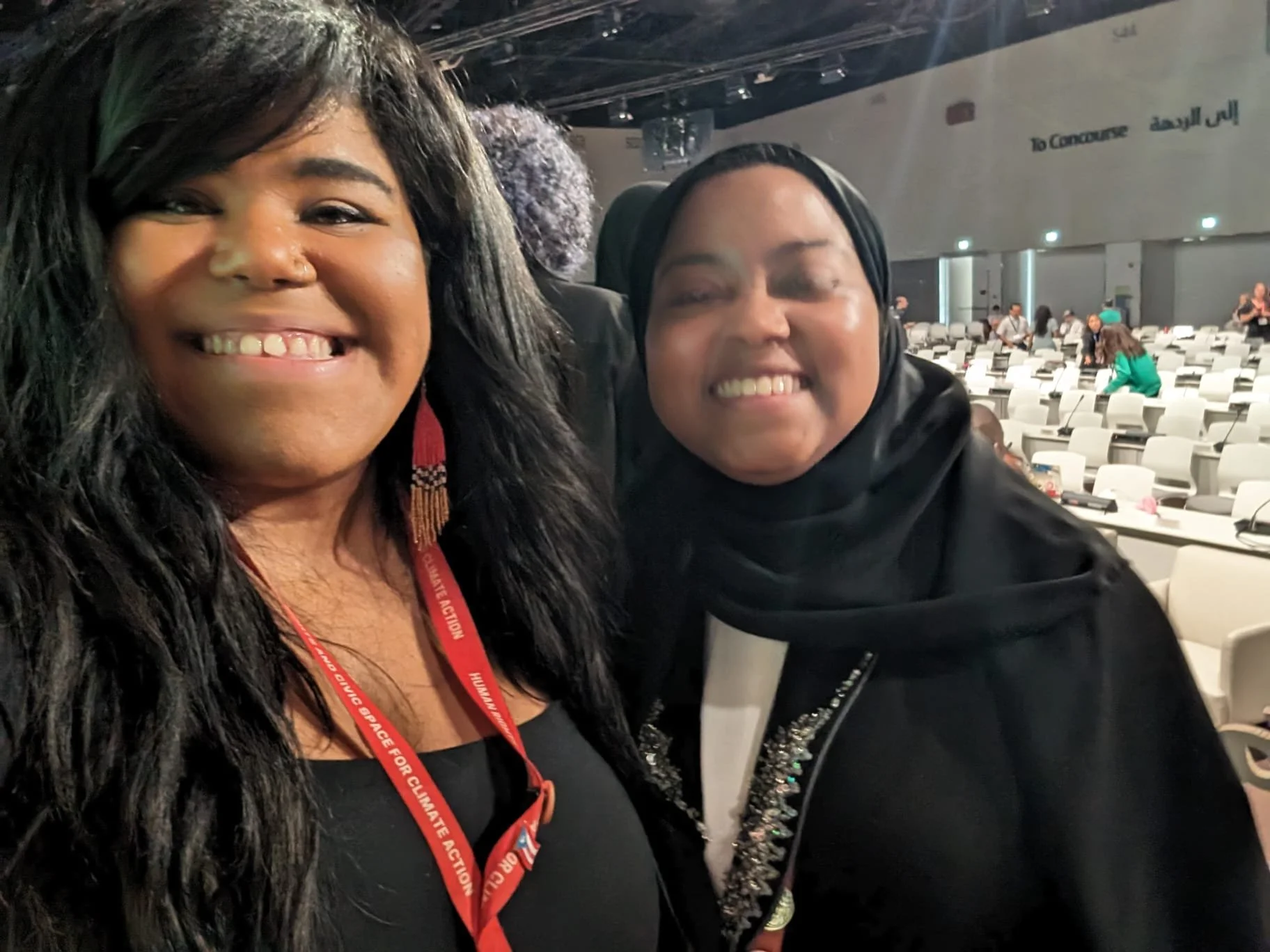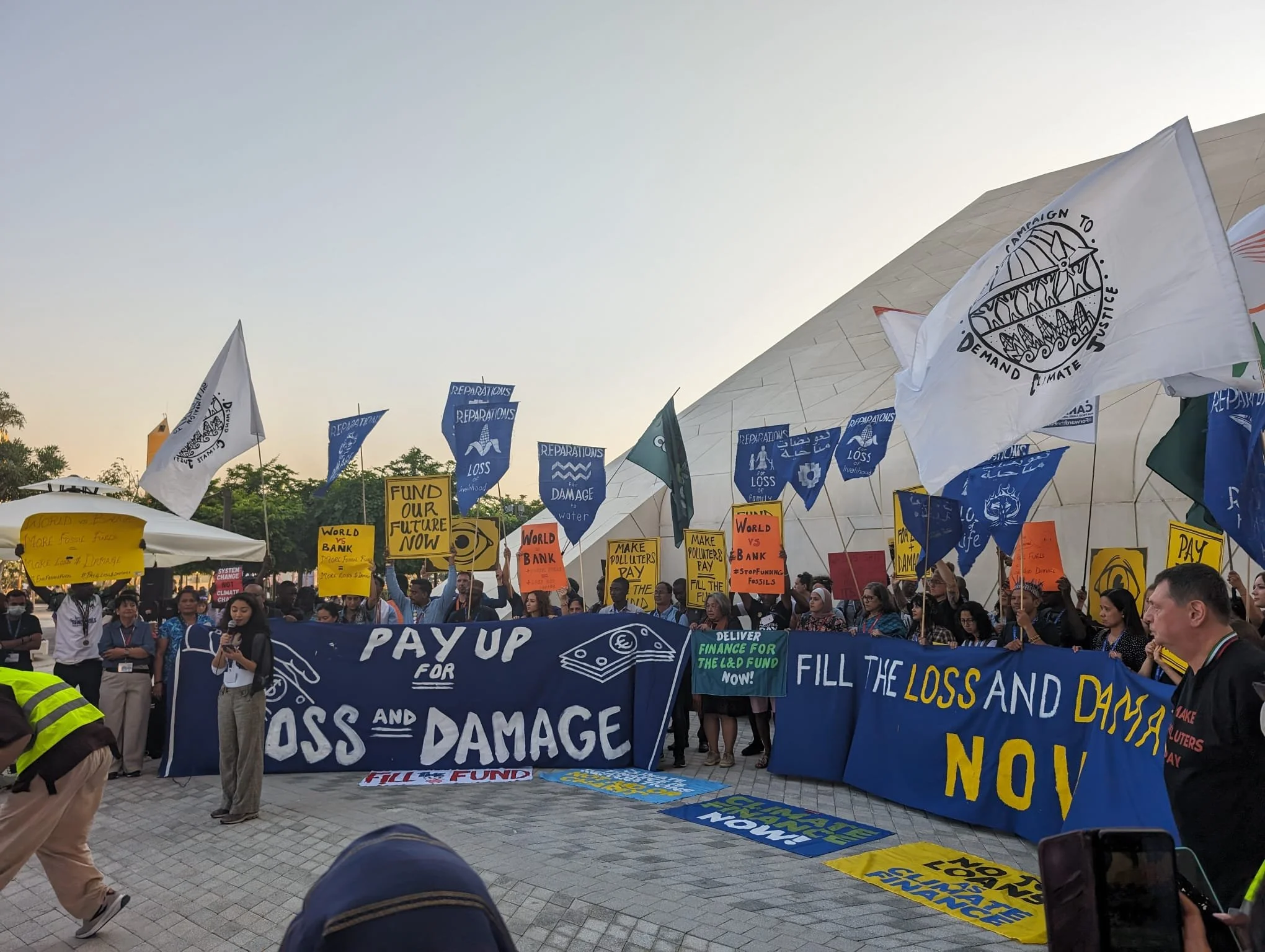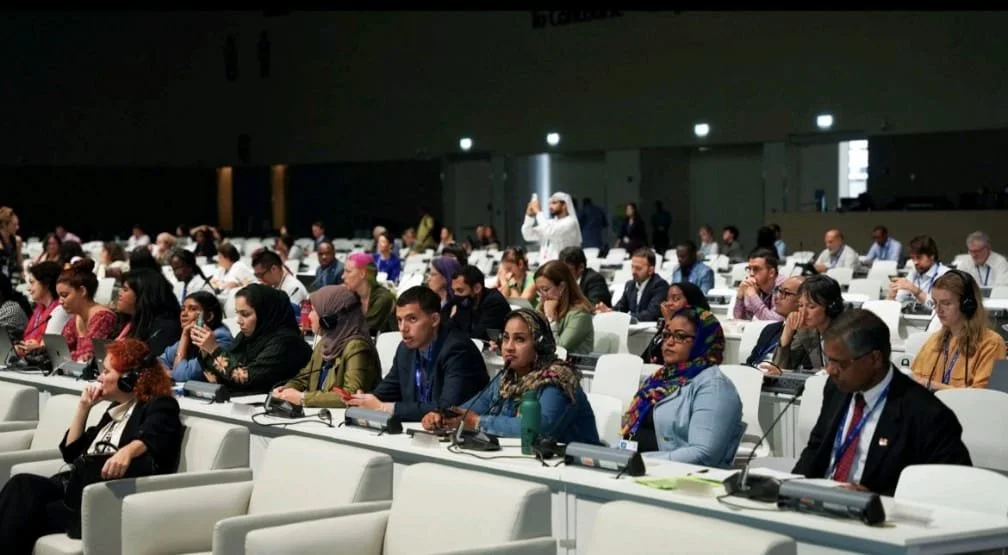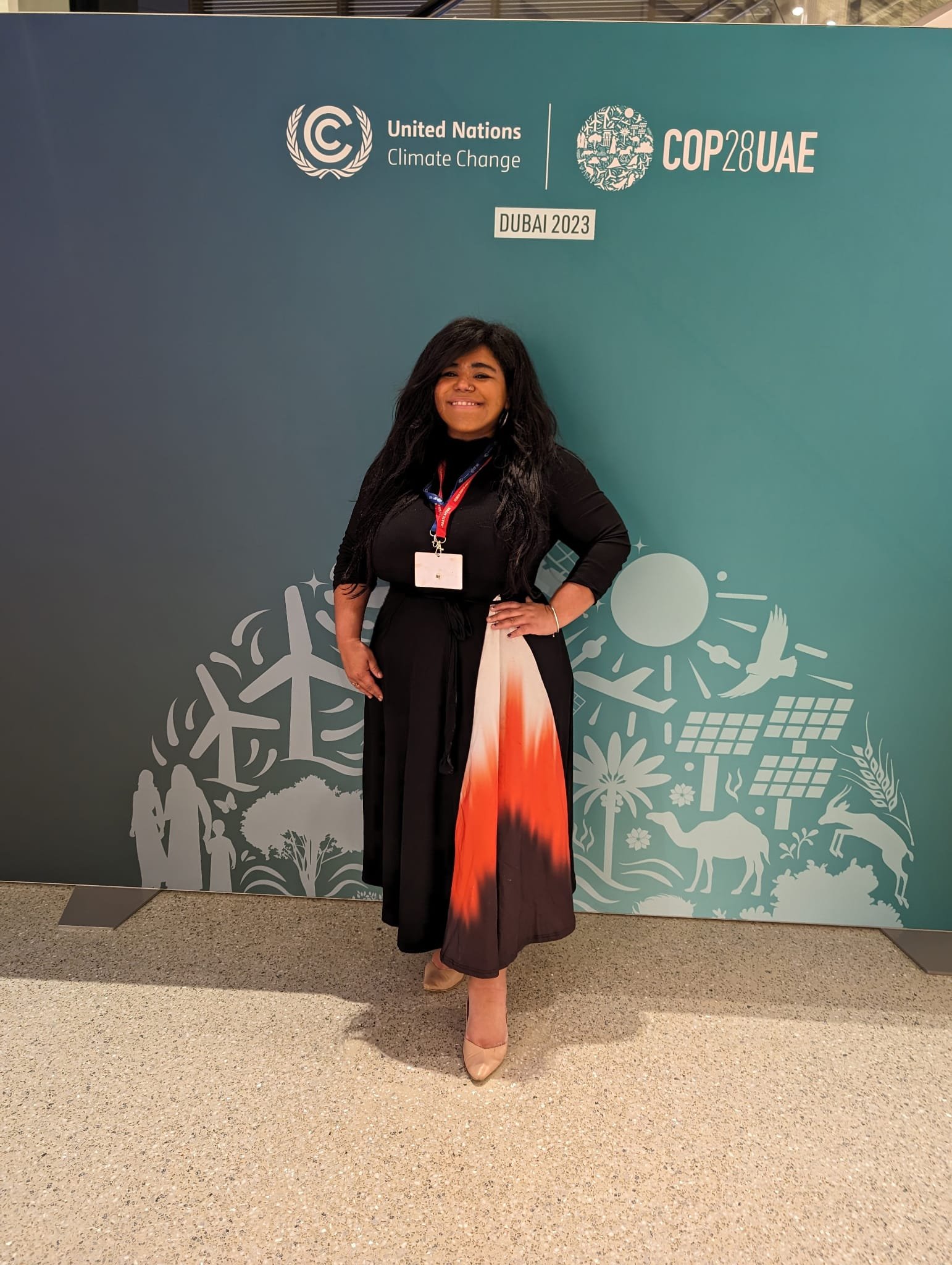ACEObservatory at COP28
The COP28, held in Dubai from Nov 30 to Dec 14, outcome missed the mark on justice for the majority of the world. While it has some big advancements like the mention of fossil fuels for the first time in a UN agreement, it failed to course correct and create the transformative change the climate crisis is demanding. We must restore collaboration and trust in the multilateral process with increased concrete pathways, resource mobilization, and putting people at the center.
Our engagement at COP was focused around ACE, human rights, climate justice, and participatory approaches acress the agenda. Here is an overview of our involvement.
Empowering a Fair, Equitable, and Just Transition
The ACE Observatory supported the design and planning of this ACE in-session Presidency Event. This event brought together different actors to discuss and strategies how the Action for Climate Empowerment (ACE) toolkit could enable an ecological transition. Together with our partners Climate Outreach we facilitated a session of the World Cafe focusing on Effective stakeholder engagement in the design and implementation of just transitions strategies and action. Some of the key takeaways were:
ACE dimensions are key tools to not leave anyone behind, a just transition must benefit all segments of society -especially those in vulnerable situations.
Participatory approaches must be set in place to define just transition and avoid cooption of language.
Education must be connected to real green jobs and that we are not promoting a transition to false solutions or jobs that do not exist.
There is a need for more capacity building around institutionalized and civil society’s organized participatory spaces.
ACE is pivotal in providing knowledge skills and opportunities to everyone to contribute and benefit from sustainable development.
Escazú Agreement as a catalyst for climate empowerment actions
As part of the Synergies between the Escazú agreement and other international commitments session, we participated in this panel which aimed to offer a multistakeholder space to discuss the Escazú Agreement's role in promoting informed and participatory climate actions. This regional agreement on access to information, public participation, and justice in environmental matters in Latin America and the Caribbean is a vital tool in incorporating environmental policies into national climate strategies.
We had the honor to discuss with the the Ministers of Brazil and Belize and the Rapporteur of the Economic, Social, Cultural, and Environmental Human Rights (Dhesca) the advancements of the Escazu implementation plan of the government of Argentina and the strides Chile is taking to develop it's own Plan. The panel was moderated by Santiago Lorenzo, Head of the Climate Change Economics Unit at ECLAC.
Consultation on Non-Sovereign States' Rights
During the consultation on the right to development, the ACE Observatory offered valuable perspectives on the rights of non-sovereign states, especially the case of Puerto Rico. We discussed the interconnections between the right to a healthy environment, climate action, and development, stressing the need for inclusive policies that consider the unique challenges and rights of these states.
Our involvement in COP28 was a testament to the ACE Observatory's commitment to facilitating informed discussions, advocating for equitable climate policies, and ensuring that all voices, especially those of marginalized and non-sovereign entities, are heard. As we move forward, our focus remains on supporting education and participation in climate action, advocating for rights-based approaches, and ensuring access to information for all.


